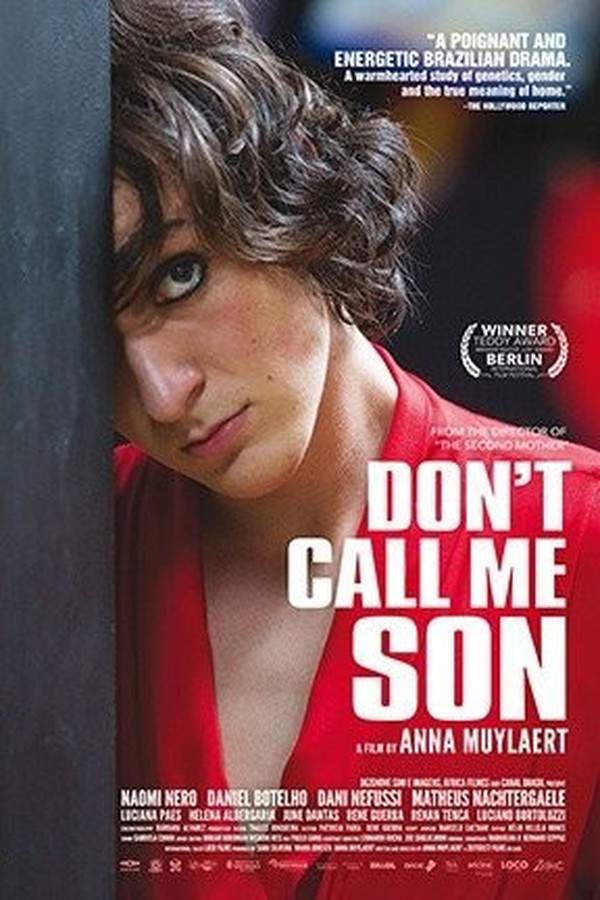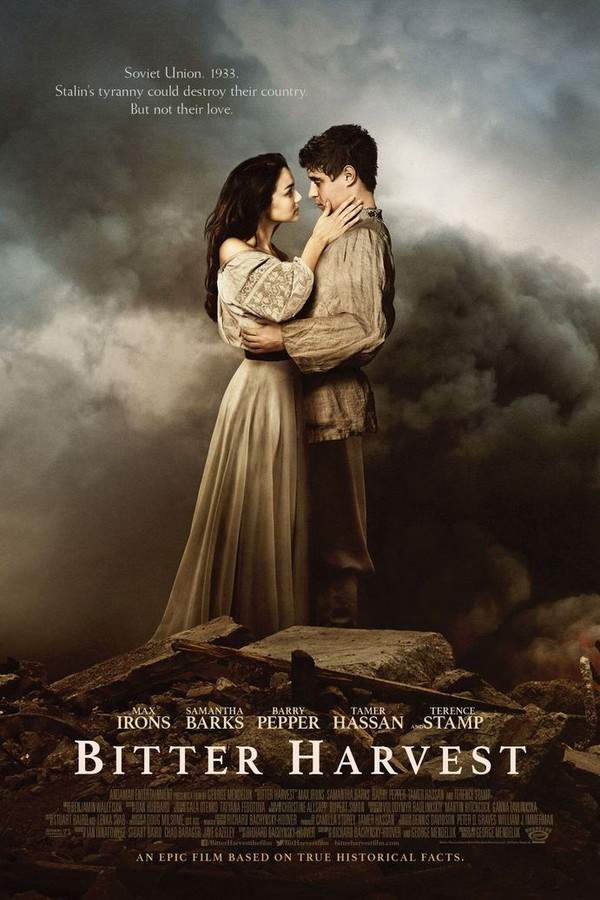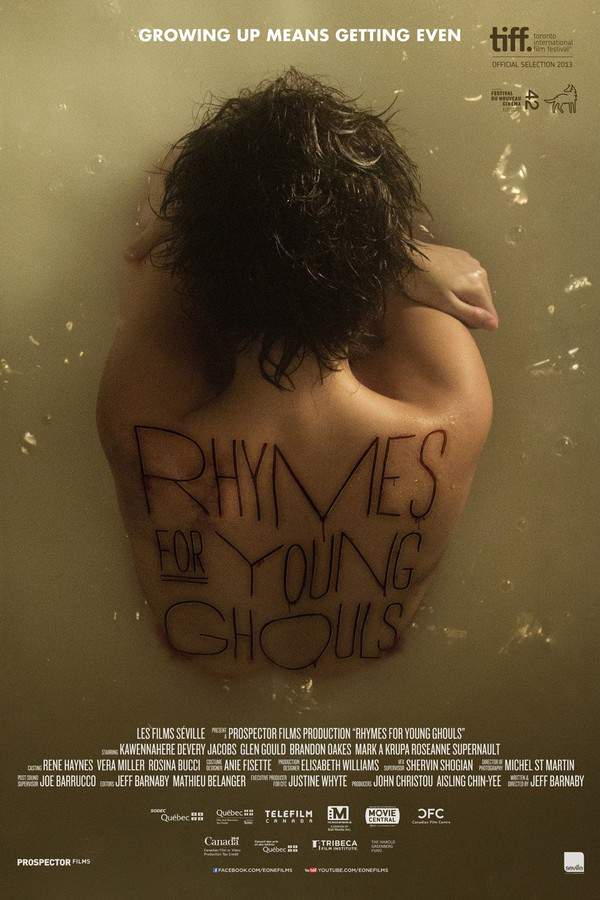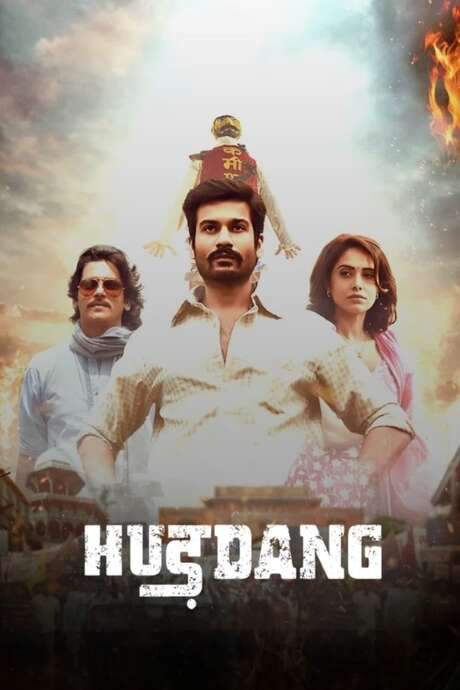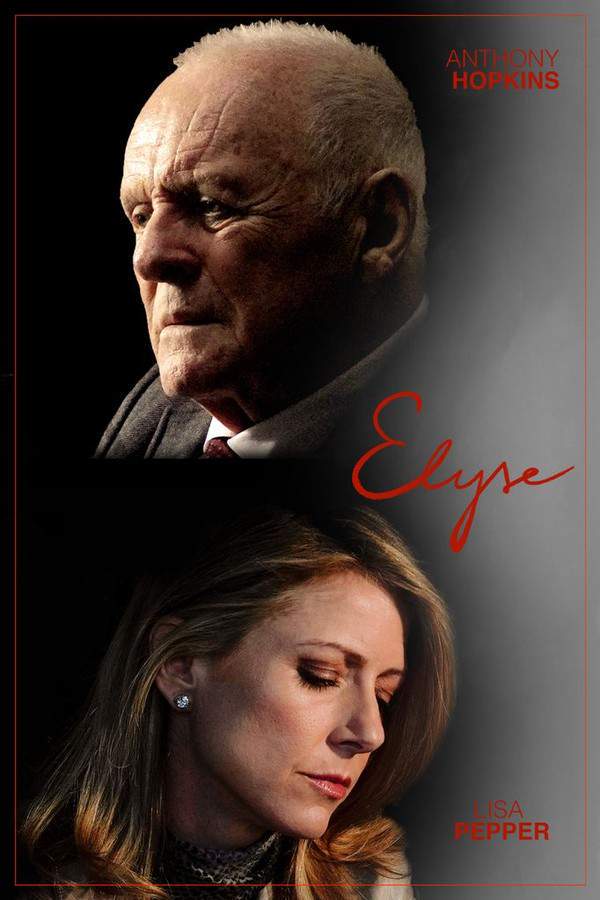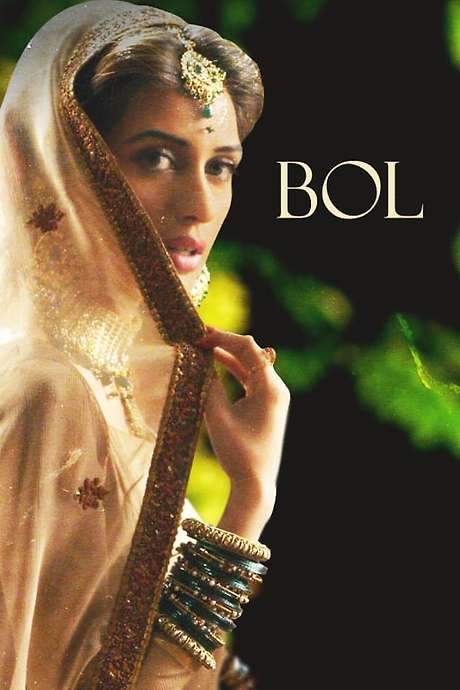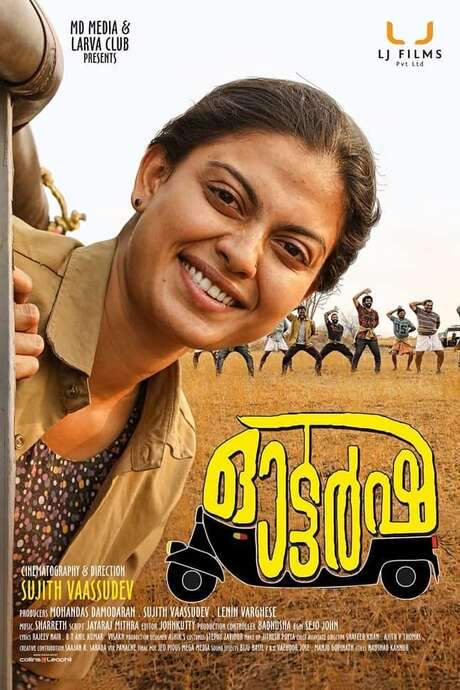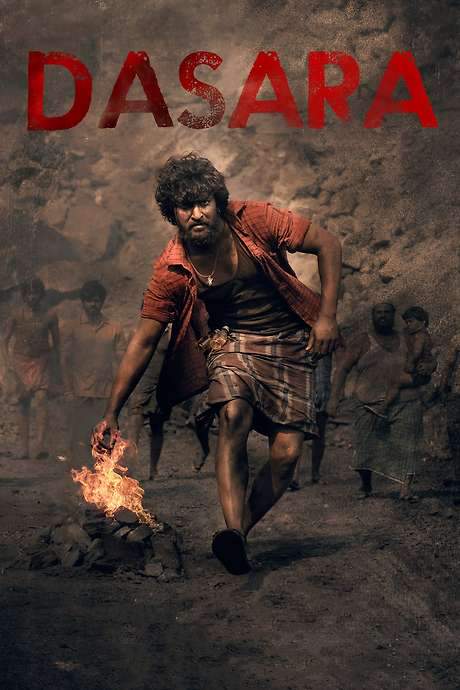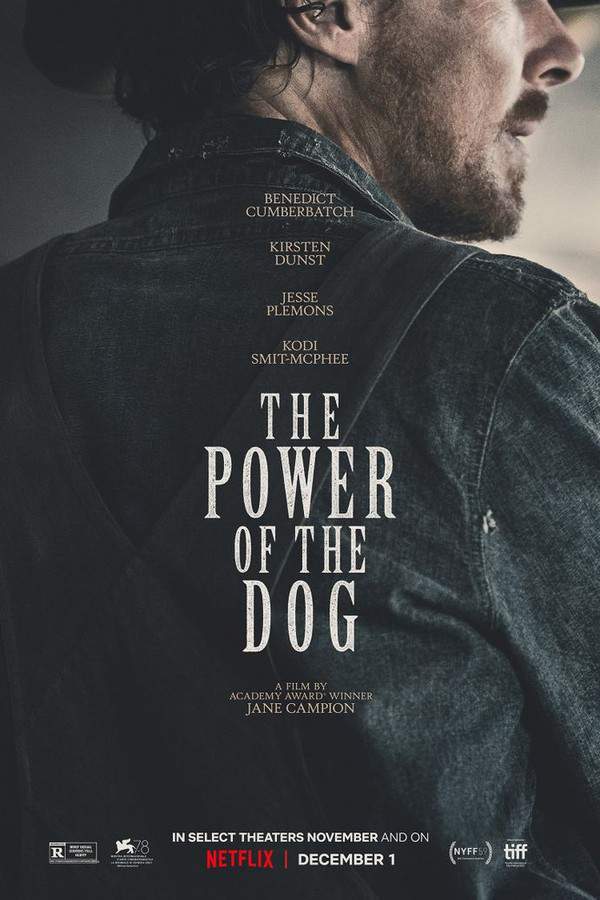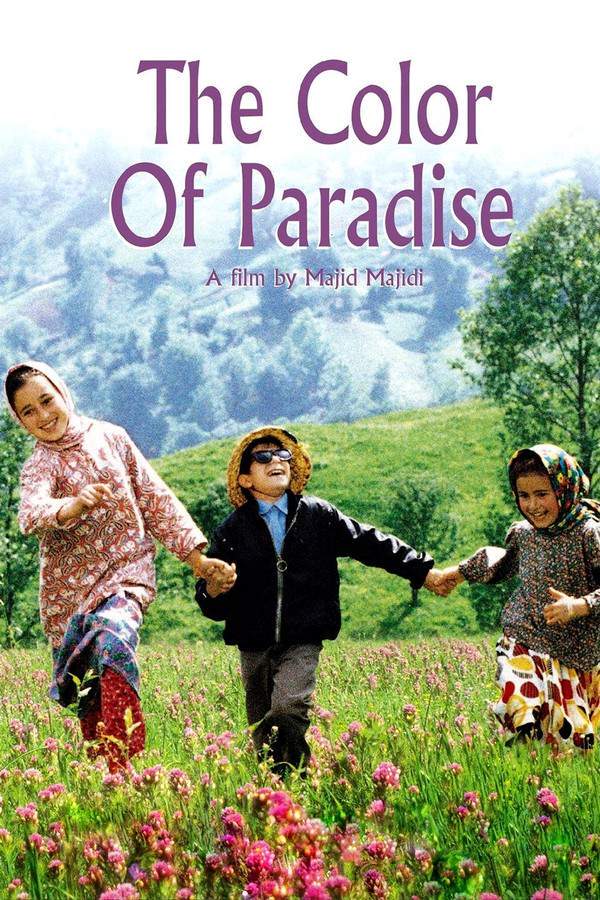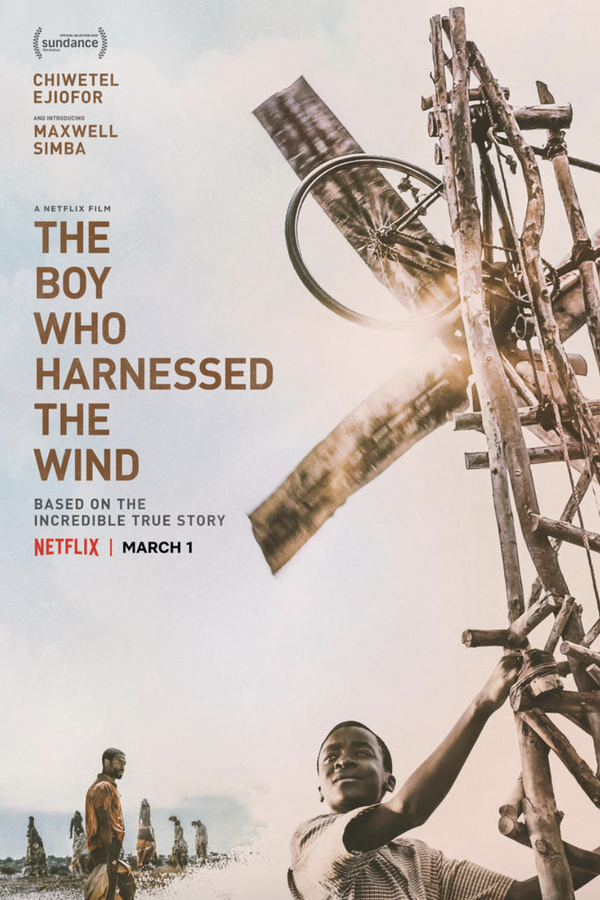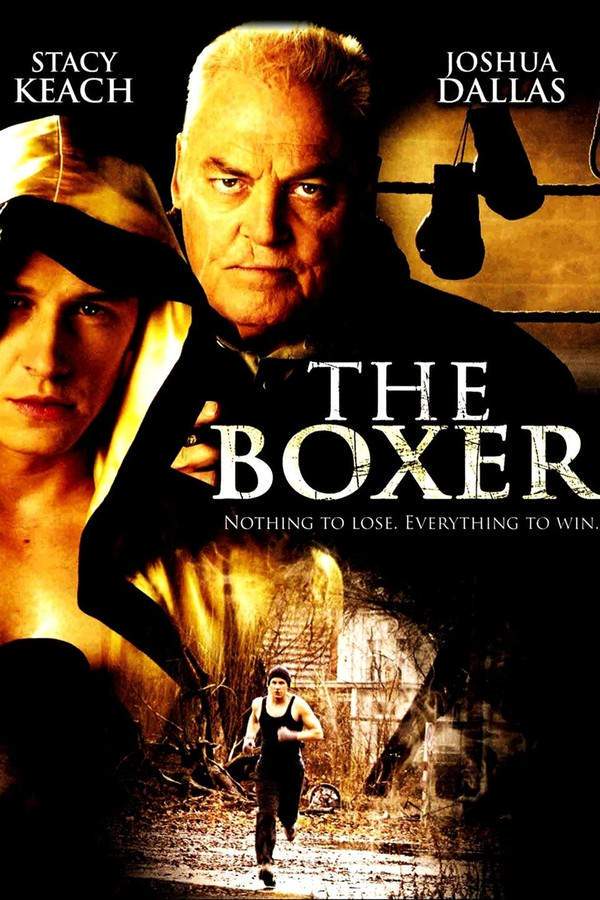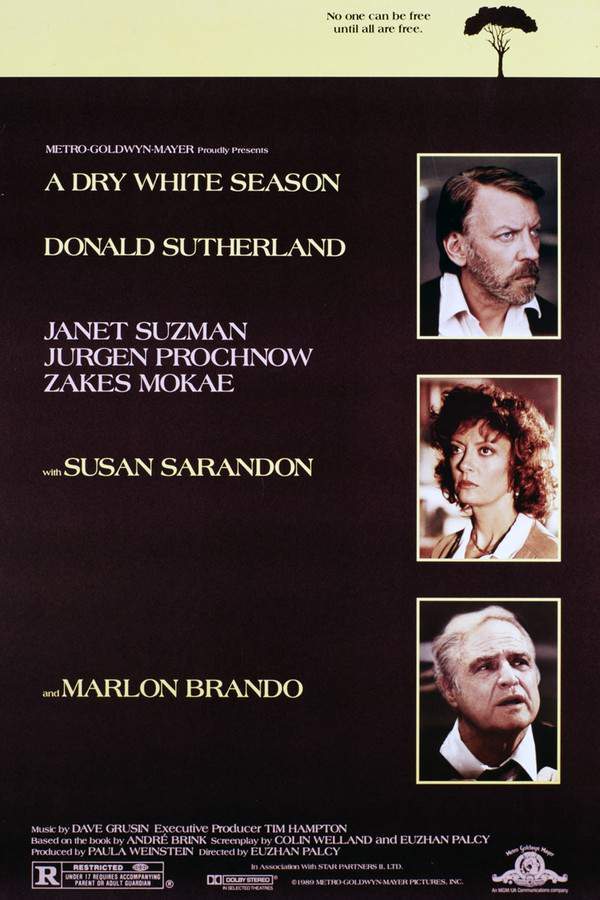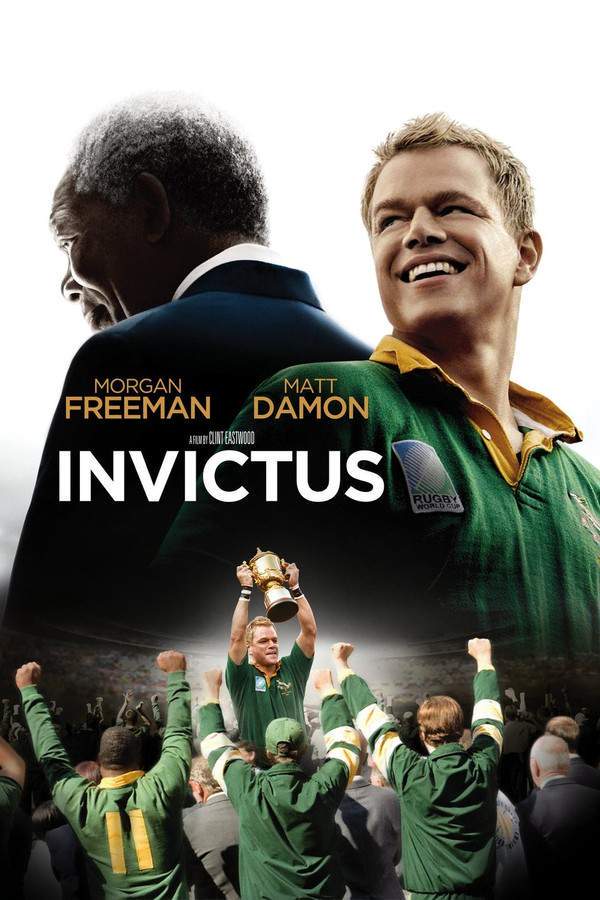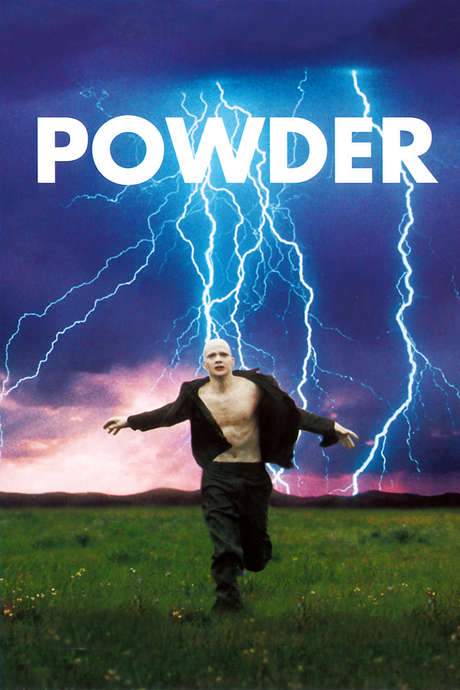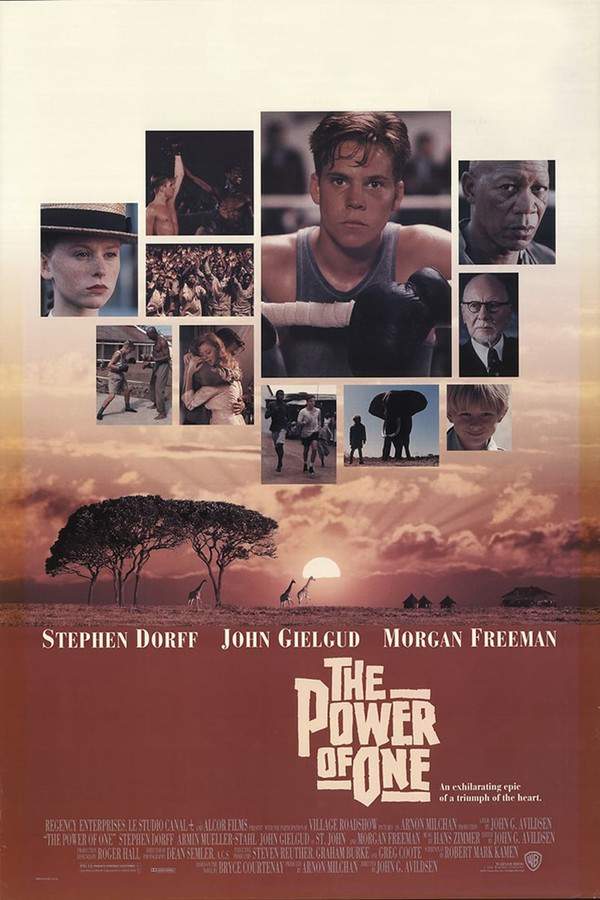
The Power of One
Year: 1992
Runtime: 127 min
Language: English
Director: John G. Avildsen
During the 1930s in South Africa, a boy named P.K. develops an unexpected friendship with Doc, a man unjustly imprisoned. As P.K. matures, he finds release and purpose through boxing, a pursuit that unexpectedly brings him into conflict with the country's apartheid system. He faces personal losses and finds strength in his connection with Doc and his passion for the sport.
Warning: spoilers below!
Haven’t seen The Power of One yet? This summary contains major spoilers. Bookmark the page, watch the movie, and come back for the full breakdown. If you're ready, scroll on and relive the story!
The Power of One (1992) – Full Plot Summary & Ending Explained
Read the complete plot breakdown of The Power of One (1992), including all key story events, major twists, and the ending explained in detail. Discover what really happened—and what it all means.
In the early 1930s, Peter Philip Kennith Keith, affectionately known as PK, was born into a modest homestead in South Africa, raised by a recently widowed English mother. This tender beginning set the stage for PK’s distinctive upbringing, where she imparted the English language and culture while his Zulu nanny instilled African traditions. PK’s closest companion during this formative period was Tonderai, the son of his nanny. However, their peaceful life was soon shattered by a devastating rinderpest outbreak that decimated the cattle on their family farm. The situation became too much for PK’s mother, leading to her nervous breakdown, which resulted in PK being sent away to an Afrikaans boarding school as she sought recovery.
At this new school, PK stood out as the only English-speaking student among the Afrikaner children, and he quickly became the target of relentless bullying, particularly at the hands of Jaapie Botha. The harsh treatment, which included spitting and humiliation, deeply affected PK, resulting in a severe case of bedwetting. With help from the local sangoma Dabula Manzi, PK eventually faced his fears, and in an act of solace, he was gifted a chicken that he named Mother Courage—who became his steadfast friend and confidant.
The onset of war in Europe brought further turmoil to PK’s life. In a shocking display, the Afrikaner students abducted him along with Mother Courage, subjecting them to a mock Nazi trial. During this harrowing episode, Botha vehemently articulated his anti-British sentiments, laying the blame for past atrocities squarely at PK’s feet. This culminated in a tragic and gruesome act where Mother Courage was killed by Jaapie, intensifying PK’s anguish. In a moment of desperation, PK retaliated against Botha, yet his confrontation led to an attempted execution, which was fortunately disrupted by a teacher, resulting in Botha’s subsequent expulsion.
After the loss of his mother, PK began living with his grandfather in Barberton. It was here that he crossed paths with Karl “Doc” von Vollensteen, a lonely German musician who had escaped the horrors of the Nazis but had lost his family in the process. Doc recognized PK’s potential and guided him to become an exceptional pianist. Even while being interned as an enemy alien during the war, PK persisted in visiting Doc, where he met Geel Piet, a Cape Coloured inmate and boxer, who imbued him with valuable life lessons: > “first with the head, then with the heart”.
As Piet Kramer’s moral compass evolved, he started to show compassion for the African prisoners, who endured brutal treatment from Sgt. Bormann, an Afrikaner guard. One harrowing instance saw Bormann dehumanizing PK by forcing him to eat manure, a stark illustration of the prisoners’ degrading conditions. Determined to instigate change, Piet covertly worked with Doc to smuggle contraband to the inmates, write letters advocating for their plight, and bear witness to their suffering. However, the end of World War II brought PK heart-wrenching news: Doc was deported back to Germany, leading to Piet’s tragic fate as Bormann executed him for organizing a concert that challenged the guards’ authority.
As the years passed, by 1948, Piet enrolled at the esteemed Prince of Wales School in Johannesburg. It was during a boxing championship that he met Maria Marais, the Afrikaans daughter of a National Party official. Their passion-filled romance faced dangerous scrutiny as PK became embroiled with Gideon Duma, a dedicated boxer from Alexandra who inspired him to launch an English school for African children in defiance of apartheid.
Maria’s father, enraged by PK’s current associations and romance, contacted the police, leading to a tense investigation that left many friends and allies under scrutiny. The situation spiraled when Duma was severely injured, and Maria lost her life during a police raid at their school, a tragedy that left a community shattered. In his grief, PK considered escaping to Oxford, but was reminded by the recovering Duma of the fruits of their labor, bolstering his resolve to remain and fight for justice in Africa.
As the night fell heavily over Alexandra, a brutal onslaught led by Jaapie Botha claimed numerous victims. In the midst of the chaos, Colonel Breyten was killed by an enraged villager seeking retribution. The atmosphere crackled with tension as Botha threatened Elias Mlungisi, a local boxing promoter, yet PK stood resolute against him. Their long-standing conflict culminated in a fierce battle, leading Botha to conceal a firearm in a moment of desperation. However, Duma’s unexpected intervention with a cricket bat ended Botha’s malicious intentions once and for all.
After these harrowing events, PK and Duma found themselves fleeing from the oppressive weight of the apartheid regime, both resolved to dismantle the barriers of injustice. Together, they vowed to continue confronting oppression, buoyed by a steadfast community of survivors. As PK reflects on the myriad influences that shaped his journey—the nurturing wisdom of his devoted nanny, the mentorship of Doc, the fierce spirit of Geel Piet, and the enduring strength of Dabula Manzi—his heart is full of a lasting tribute to Maria, whose spirit remains a poignant reminder of love, resilience, and the fight for equality.
Last Updated: November 18, 2024 at 20:18
Explore Movie Threads
Discover curated groups of movies connected by mood, themes, and story style. Browse collections built around emotion, atmosphere, and narrative focus to easily find films that match what you feel like watching right now.
Movies like The Power of One: Coming of Age Under Oppression
Young protagonists finding their voice and strength in the face of systemic injustice.Discover powerful dramas where young protagonists, much like in The Power of One, navigate a journey of self-discovery against a backdrop of systemic injustice. These stories blend personal growth with political awakening, often featuring heavy emotional weight and bittersweet conclusions.
Narrative Summary
This narrative pattern intertwines a character's formative years with a larger societal conflict. The protagonist's awakening to injustice becomes the catalyst for their personal development, often guided by mentors and tested by profound loss, leading to a strengthened resolve.
Why These Movies?
These films are grouped by their core focus on the intersection of personal and political maturation. They share a heavy emotional tone, a steady pace that spans significant time, and a consistent theme of resilience forged in the fires of oppression.
Sombber Dramas with Resilient Hope like The Power of One
Stories where profound grief is balanced by an unyielding, resilient spirit.If you were moved by the heavy emotions and enduring hope in The Power of One, explore these similar dramas. They feature high-intensity stories with dark tones, where characters face immense adversity but find strength and purpose, leading to bittersweet yet inspiring conclusions.
Narrative Summary
The emotional journey in these films is defined by a push-and-pull between devastating tragedy and a hard-won, resilient optimism. The narrative doesn't shy away from darkness but consistently reaffirms the power of the human spirit to endure and find meaning.
Why These Movies?
They share a specific and powerful emotional mix: a high-intensity, dark tone paired with a heavy emotional weight, yet all are underpinned by a core of hope that prevents them from being purely bleak. The pacing is often steady, allowing the emotional impact to resonate deeply.
Unlock the Full Story of The Power of One
Don't stop at just watching — explore The Power of One in full detail. From the complete plot summary and scene-by-scene timeline to character breakdowns, thematic analysis, and a deep dive into the ending — every page helps you truly understand what The Power of One is all about. Plus, discover what's next after the movie.
The Power of One Timeline
Track the full timeline of The Power of One with every major event arranged chronologically. Perfect for decoding non-linear storytelling, flashbacks, or parallel narratives with a clear scene-by-scene breakdown.

Characters, Settings & Themes in The Power of One
Discover the characters, locations, and core themes that shape The Power of One. Get insights into symbolic elements, setting significance, and deeper narrative meaning — ideal for thematic analysis and movie breakdowns.

The Power of One Spoiler-Free Summary
Get a quick, spoiler-free overview of The Power of One that covers the main plot points and key details without revealing any major twists or spoilers. Perfect for those who want to know what to expect before diving in.

More About The Power of One
Visit What's After the Movie to explore more about The Power of One: box office results, cast and crew info, production details, post-credit scenes, and external links — all in one place for movie fans and researchers.

Similar Movies to The Power of One
Discover movies like The Power of One that share similar genres, themes, and storytelling elements. Whether you’re drawn to the atmosphere, character arcs, or plot structure, these curated recommendations will help you explore more films you’ll love.
Explore More About Movie The Power of One
The Power of One (1992) Scene-by-Scene Movie Timeline
The Power of One (1992) Movie Characters, Themes & Settings
The Power of One (1992) Spoiler-Free Summary & Key Flow
Movies Like The Power of One – Similar Titles You’ll Enjoy
The Power of the Dog (2021) Spoiler-Packed Plot Recap
The Color of Paradise (2000) Spoiler-Packed Plot Recap
The Boy Who Harnessed the Wind (2019) Movie Recap & Themes
The Boxer (1997) Complete Plot Breakdown
A Dry White Season (1989) Full Movie Breakdown
Southpaw (2000) Full Movie Breakdown
Invictus (2009) Spoiler-Packed Plot Recap
More Than a Game (2009) Movie Recap & Themes
One of the Boys (2018) Full Summary & Key Details
A World Apart (1988) Full Movie Breakdown
One Second Champion (2020) Full Summary & Key Details
One-Armed Boxer (1972) Movie Recap & Themes
Powder (1995) Story Summary & Characters
One on One (1977) Complete Plot Breakdown
Power Kids (2009) Movie Recap & Themes


